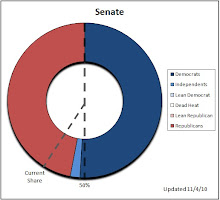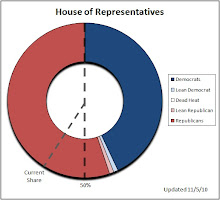Thank you for tuning in to the next installment of Cal Bowen's "What Would I Do If I Could?" In this episode, Cal analyzes the foreign policy of the United States and what actions he feels need to be taken.
Foreign affairs consist of a wide variety of issues so complex one could spend a lifetime studying and never hope to fully understand a single one of them. It is about dealing with situations in which different cultures are in conflict either with each other or with your own. Understanding a different culture is an extremely difficult task, but it is one that must be done in order to effectively carry out foreign policy.
The United States and the rest of Western civilization have utterly failed at this task in the previous half century in a multitude of ways. Good intentions were always in their hearts, but the leaders of the “civilized world” never fully understood the cultures of the places that they controlled in the age of Imperialism. In the Middle East and Africa, land was divided not by cultures or previously established nations, but in artificial landmasses that fit the bill for the Europeans who controlled the territory. The Middle Eastern problems were exacerbated with the establishment of the Israeli state. That in and of itself may have been a good idea, but forcibly displacing people from their homes is just bad policy. When you consider the fact that you are doubly spitting in their face by taking away the Holy Land from a religion nearly unanimous in the region, you are asking for trouble.
Years of policies instituting the famous idea that “the enemy of my enemy is my friend” continued to damage the already awful situation by propping up cruel dictatorships that would turn some of these regions into slaughterhouses. We must learn from our mistakes.
Today, the United States finds itself in a Global War on Terror, and yes, this is a real war. The turmoil of the Middle East that may have in fact been partially stoked by our own actions created an environment in which radicalism has a perfect recruiting ground. The key to the situation that we must understand is that Terrorism is not a form of Islam; it is a form of radicalism. Radicalism is something we have seen and experienced repeatedly in human society. The Ku Klux Klan depended on the same radicalism.
The Ku Klux Klan, which arose in the Southern United States after it had been ravaged by war. The way of life known by Southerners was gone and people needed something to blame. Radicalism breeds on that environment. African-Americans became the scapegoat. The Ku Klux Klan funneled that bitterness and hatred onto a race. They used the Christian religion as a vehicle.
Terrorism is a form of radicalism that utilizes Islam as a vehicle. When two planes crashed into the World Trade Center, that terrorism reached its destination: The United States of America. We are the targets of their bitterness. We are the scapegoats for their frustration. While we may be guilty of poor judgment in our foreign policy in the past, nothing we did deserved the cruel action of that September morning.
That morning affected this nation on a deep psychological level. As has been reiterated numerous times before, we were made vulnerable here at home. The great oceans no longer separated us from our enemies.
The nation rallied together, as it always does when it is attacked, and sought vengeance on its enemies. That, however, was an error, and, a different purpose for the Global War on Terror must be made clear. We should not be out to get back at those who got us. We should be out to prevent it from happening again.
Vengeance led us to Afghanistan, the location of the Taliban and, we believed, Osama bin Laden. The war in Afghanistan was relatively successful and the Taliban, as it was once known, was devastated. This makes the war good in the name of preventing future attacks as well. The Taliban certainly was in no place to attack us again. That would not last long, however, as long as the breeding ground that created it still existed.
A true fight to prevent another attack must go further than vengeance. The fight must extend into the heart of the Middle East and it must extinguish the burning fire of injustice. A stable, free and democratic state in the Middle East would, in theory, be the first step towards relieving the people of their bitterness.
Two fundamental questions arise at this point. What is the best way to go about establishing a democracy in the Middle East? Do the American people just want vengeance or do they want prevention?
In the Middle East, Iraq was the perfect target. The war would be easy to sell. Saddam Hussein was a brutal dictator who openly defied both the US and UN. The United States had already defeated him once, meaning his military was relatively weak. The plan seemed perfect; however, the execution was unsound.
A strategy for the establishment of a new democratic state through military force must take into account the need for stabilization throughout the region. For this reason, an invasion must take its time to clean out all of the towns on its way to the capital and then hold those locations and maintain stability. This strategy also allows for a certain amount of border security to prevent insurgents. When the US invaded Iraq, however, they avoided all resistance possible and raced to Baghdad, leaving many fights to be fought at a later date, and allowing even more fighters to enter from neighboring countries. This strategy required fewer soldiers, but simply wasted valuable time in the war effort.
Another critical mistake in the execution of the strategy was the manner in which the United States ostracized all those affiliated with Saddam’s regime. Every member of the Baath party was robbed of his job. This becomes clearly insane when you recognize that the Baath party was similar to the Communist party of the Soviet Union in that all upper-class, academic, or security jobs required membership in the party. Effectively, this order fired all the police, all of the teachers, and many other instrumental members of society. Incidentally, the decision led to the firing of Saddam’s border patrol. Where do you think they turned for money?
The many mistakes in execution led to a prolonged war in Iraq, which extended beyond the expiration date of America’s passionate anger against Terrorists. The desire for vengeance was gone. The political engine behind the Global War on Terror failed.
At this point, Iraq is a mess. The surge of troops in Iraq is helping simply because of the added security. The only way to maintain success, however, is to alter the course in Iraq and to take into account cultural facts.
The land on which the current Iraqi state is situated was originally three distinct states when it belonged to the Ottoman Empire. The states were situated along sectarian lines that are still evident today. The Sunni, Shia, and Kurdish regions are very evident. The region has been in turmoil ever since the British Empire, during the age of Imperialism, formed one state out of these three distinct cultures. (World Press)
The most important step that must be taken at this point for the future of Iraq and the United States is that Iraq must be converted into a federal system of three distinct states. These states could operate together loosely with a capital city in Baghdad. This is the only way the great disagreements between the regions can be settled.
The next step in solving the problems of the Middle East must be a renewed sense of diplomacy with states such as Iran and Syria. These states stand against all of our goals in the Middle East. We must talk with them in an effort to further understand their culture and their grievances. Communication is the key to the solution of all conflicts. While communication sometimes breaks down, we must not cut off lines of communication until absolutely necessary.
It is absolutely essential that the United States find a solution to the problems in Iraq. Other conflicts are eminent. North Korea is under the oppressive rule of an insane dictator bent on becoming recognized as a world power. The entire continent of Africa seems to be the forgotten about, but their struggles are perhaps even worse than that of the Middle East. In Darfur, we are seeing massive genocide. The only thing that separates the terrorists of the Middle East and those of Africa is the Middle Eastern terrorists are targeting the United States; African terrorists are targeting different Africans. The world may not need a policeman, but it certainly needs a leader who is willing to call things what they are. Somebody must stand for those being persecuted in North Korea and Darfur. Who will it be if not the United States?
Applying common sense to politics...










No comments:
Post a Comment